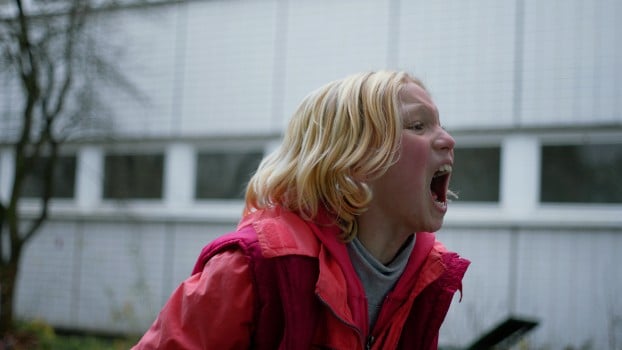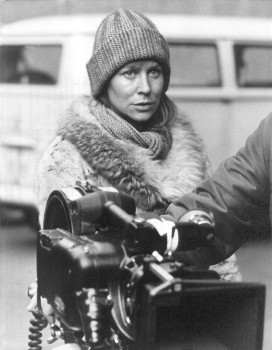The Berlinale, now in its 69th year, figures with Cannes and Venice among Europe's top cinema showcases. It will be the last edition led by Dieter Kosslick, 70, who is handing over to a younger duo after 18 years at the helm.
Nearly 400 movies from around the world will be presented, with 17 vying for the prestigious Golden Bear top prize.
Among the contenders, seven of the pictures or 41 percent were made by women — a Berlinale record and a milestone for an A-list festival.
In comparison Cannes, which has been roiled by calls for more diversity, only managed 14 percent last year and Venice just under five percent.
“The debates of the last year opened our eyes and when your eyes are open, you make different decisions,” Kosslick told AFP, referring to the #MeToo controversy over sexual misconduct and the #TimesUp movement against gender discrimination in the entertainment industry.
“But we wouldn't have done it if the films had been bad, simply to boost the women's quota.”
French Oscar winner Juliette Binoche will lead the six-member jury selecting the main prizes.
'Top of the mountain'
The head of pressure group Women and Hollywood, Melissa Silverstein, said that, particularly in a year in which not a single female filmmaker was nominated for best picture or best director at the Oscars, festivals were essential to boost industry diversity.
“We need women to get to the top of the mountain in the same way that men can,” she told AFP.
“(A festival slot) means you get noticed, you get written about in papers across the world. People will be reviewing your film and buyers and other (event) programmers will be looking at it.”
Silverstein will attend the signing of a gender-parity pledge Saturday that Cannes, Venice and other major festivals have already inked, committing the Berlinale to striving for balance in the event's top management and transparency in the selection process.
In June, Kosslick will hand over the reins to Carlo Chatrian, the current head of the Locarno film festival, and Mariette Rissenbeek, the Dutch director of German Film, which promotes homegrown movies abroad.
Women have captured the Golden Bear the last two years — Romania's Adina Pintilie for her adventurous sex docudrama “Touch Me Not” and Hungary's Ildiko Enyedi for the political allegory “On Body and Soul”.
Denmark's Lone Scherfig (“An Education”) will open the event with the world premiere of “The Kindness of Strangers”, a drama set in New York and starring Zoe Kazan, Andrea Riseborough and Bill Nighy.
Polish veteran Agnieszka Holland will unveil the Stalin-era thriller “Mr Jones” starring James Norton (“Happy Valley”) while France's Agnes Varda will premiere a new autobiographical documentary out of competition.
'Co-existence with Netflix'
After winning the Golden Lion top prize at the Venice film festival in September with “Roma”, Netflix will enter the fray in Berlin for the first time with “Elisa and Marcela” by Spain's Isabel Coixet.
Unlike Cannes, which has been at loggerheads with the streaming giant, the Berlinale sees scope for cooperation.
“It's important that big, A-list festivals keep fighting for cinema,” Kosslick said.
“Now it's about finding ways of co-existence, just like film and television did. But we have to find ways of protecting productions so that they can run in cinemas first and only then be streamed. I think that will work itself out in a big debate in Europe over the next three or four years.”
Other programme highlights include acclaimed French director Francois Ozon presenting the drama “By the Grace of God” based on real-life cases of sex abuse allegedly committed by a French priest.
A cardinal, Philippe Barbarin, is currently on trial in Lyon on charges he covered up the assaults.
German-born actress Diane Kruger and Britain's Martin Freeman are expected for the premiere of their Israeli spy thriller “The Operative” by director Yuval Adler.
And Indian superstars Ranveer Singh and Alia Bhatt are to commandeer the red carpet for the premiere of “Gully Boy” by Zoya Akhtar, one of the few big-budget woman directors in Bollywood. The movie is inspired by a true story about street rappers.
READ ALSO: Star-studded line-up unveiled for this year's Berlinale film fest




 Please whitelist us to continue reading.
Please whitelist us to continue reading.
Member comments